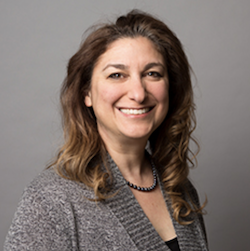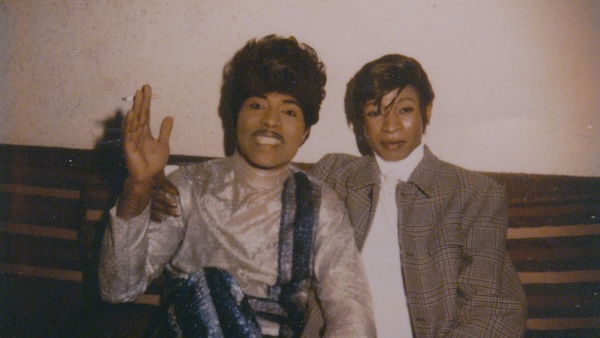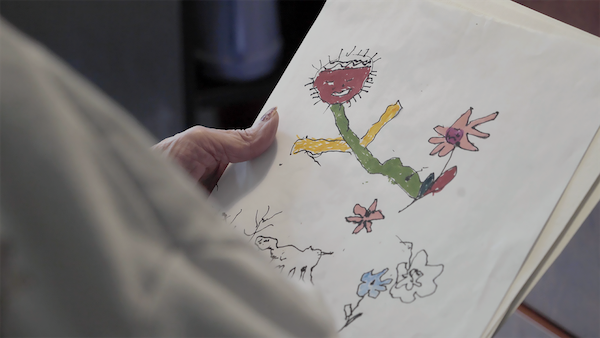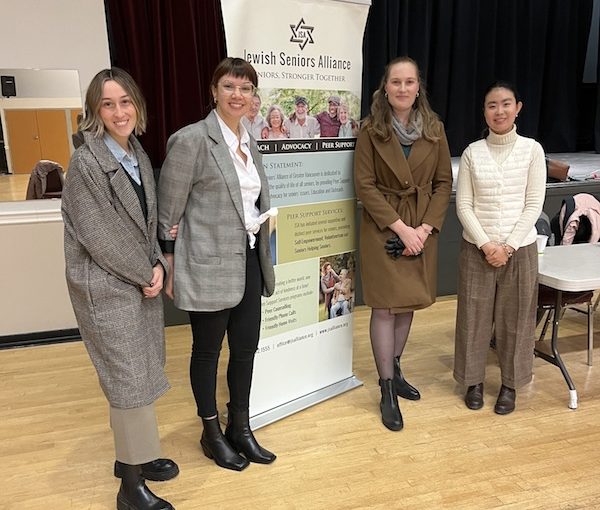Dr. Allison Sekuler of Toronto’s Baycrest Centre for Aging and Brain Health Innovation. (photo from baycrest.org)
On June 5, National Council of Jewish Women Canada (NCJWC) welcomed Dr. Allison Sekuler of Toronto’s Baycrest Centre for Aging and Brain Health Innovation as the featured speaker in the Zoom webinar titled Defy Dementia: Learn How to Reduce Your Dementia Risk.

Sekuler is the Sandra A. Rotman Chair of Cognitive Neuroscience at Baycrest’s research institute and the president and chief scientist at the Baycrest Academy for Research and Education. She is known for her foundational research in perception, cognition and brain function, as well as her clinical and translational work on age-related sensory and cognitive decline. She is the inaugural Canada Research Chair on Cognitive Neuroscience and has received numerous national and international honours, including being named one of Canada’s Top 100 Most Powerful Women by the Women’s Executive Network in 2019.
The recent webinar began with an introduction from Monica Simon, chair of NCJWC’s ageism committee. Then, with the help of AI-generated images, Sekuler presented attendees with an optimistic view of what she hopes the future holds. “We want to see a world where every single person is living a life of purpose, fulfilment and dignity,” she said.
Baycrest is at the forefront of a new field called predictive neuroscience for precision aging – an individualized approach that examines one’s brain, body and environment to detect the best ways to prevent the onset of dementia or delay it for as long as possible. This approach not only encompasses the pre-diagnosis stage, but helps medical professionals and loved ones navigate caring for someone with dementia.
“If you think about what precision medicine has done for cancer, that’s what we want to do for aging, brain health and dementia,” said Sekuler.
Through innovations in predictive neuroscience, the Baycrest team is working toward a goal of no new cases of preventable dementia being diagnosed by the year 2050 – currently, 750,000 Canadians are living with dementia, and that figure is expected to more than double by 2050.
“What we want to do is nip that in the bud as much as possible,” Sekuler said, acknowledging that, while they cannot entirely eradicate the condition, they can do more to decrease the risk for those who do not already have dementia. Research suggests that, if the onset of dementia can be delayed by even five years, the prevalence of the condition can be decreased by 50% worldwide, she said.
While there are several risk factors – such as age, sex and genetics – that cannot be controlled, Baycrest’s Defy Dementia program raises awareness of the lifestyle changes people can make to reduce their dementia risk and improve their cognitive health.
“At least 40% of the risk factors for dementia are things that we can change by changing our lifestyle,” said Sekuler.
On the podcast Defy Dementia, co-hosts Sekuler and Jay Ingram, one of Canada’s leading science journalists, cover a different risk factor every month. Each episode features a guest with lived experience with dementia and an expert on the risk factor under discussion, such as stress, sleep, diet, exercise and environment.
There are currently 12 episodes available on the website defydementia.org, or any streaming platform. Many episodes have accompanying infographics and minute-long videos summarizing the topic at-hand, also available on defydementia.org.
“Whether you like to listen to things, read things, watch things or look at things, we’ve got you covered,” Sekuler said.
Sekuler gave a high-level overview of the risk factors, sharing how each correlates to one’s dementia risk and what one can do to manage them. She reminded attendees that genetics are not the be-all and end-all, but, rather, a piece of the puzzle that can often be counteracted by managing the risk factors.
Regarding sensory loss, Sekuler explained how strains on one’s hearing and/or vision can negatively impact cognitive abilities. She pointed to tools such as Baycrest’s free online hearing test and the importance of regular check-ups for hearing and vision loss. Further, she explained that loneliness has been proven to increase dementia risk by 50%, and that social engagement in any form is key to maintaining cognitive health. She emphasized that a healthy balance of diet, exercise and sleep helps, as does lowering stress as much as possible and embracing opportunities to try new activities and learn new things.
Sekuler also turned the group’s attention towards the vital role of caregiver. She shared that “one in every two people” will assume this role, if they do not get dementia themselves. However, caregivers often sacrifice a healthy diet, proper sleep and social engagement, she said, making them six times more likely to develop the condition. Sekuler stressed that “a caretaker cannot take care of someone else if they are not taking care of themselves,” and that inviting more professionals, caregivers and loved ones into the equation lessens the burden on one individual and may be a saving grace for that person’s health.
During the question-and-answer period, which was moderated by NCJWC’s Rochelle Garfinkel, Sekuler was asked what organizations like NCJWC can do to fight dementia. She highlighted the importance of sharing information and resources widely, and encouraged involvement in dementia research wherever possible. As well, she said, promoting tools like Baycrest’s online cognitive assessment test to “get your baseline” – as one would do with a regular vision test – is crucial for early detection.
According to Sekuler, when it comes to protecting your cognitive health, “everyone can make these changes. You don’t have to be perfect, but you do have to start somewhere.”
Alisa Bressler is a graduate of Queen’s University in Kingston, Ont. She is an avid reader and writer and will be pursuing a master’s of journalism at Boston University in the fall. Bressler is a member of the Vancouver Jewish community, and was the inaugural Baila Lazarus Jewish Journalism Intern.



